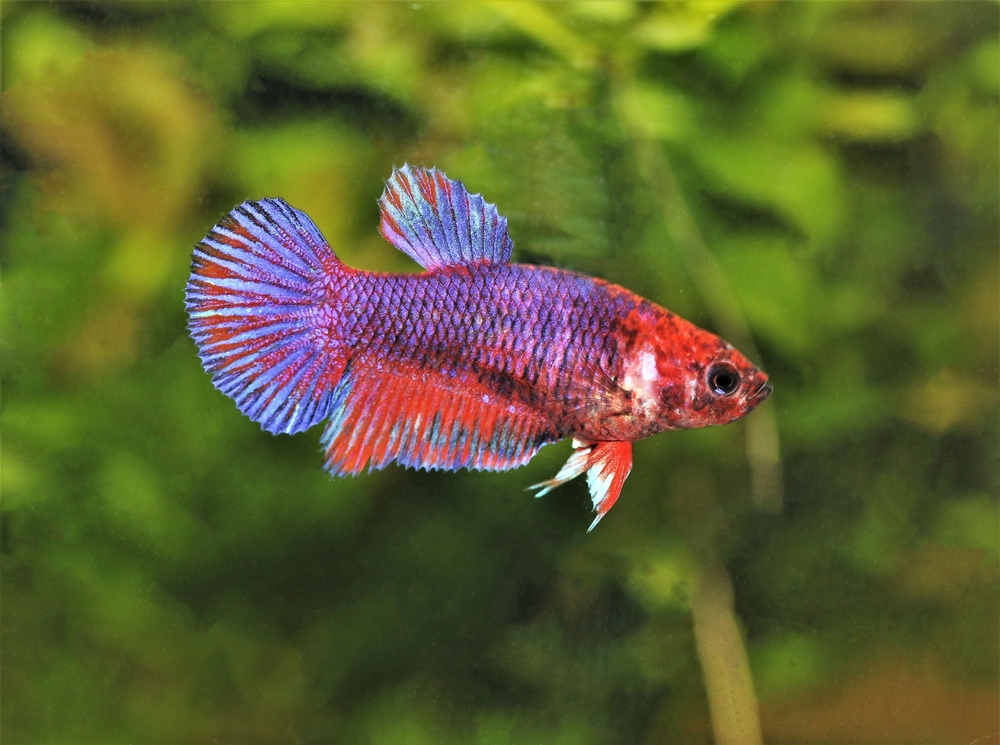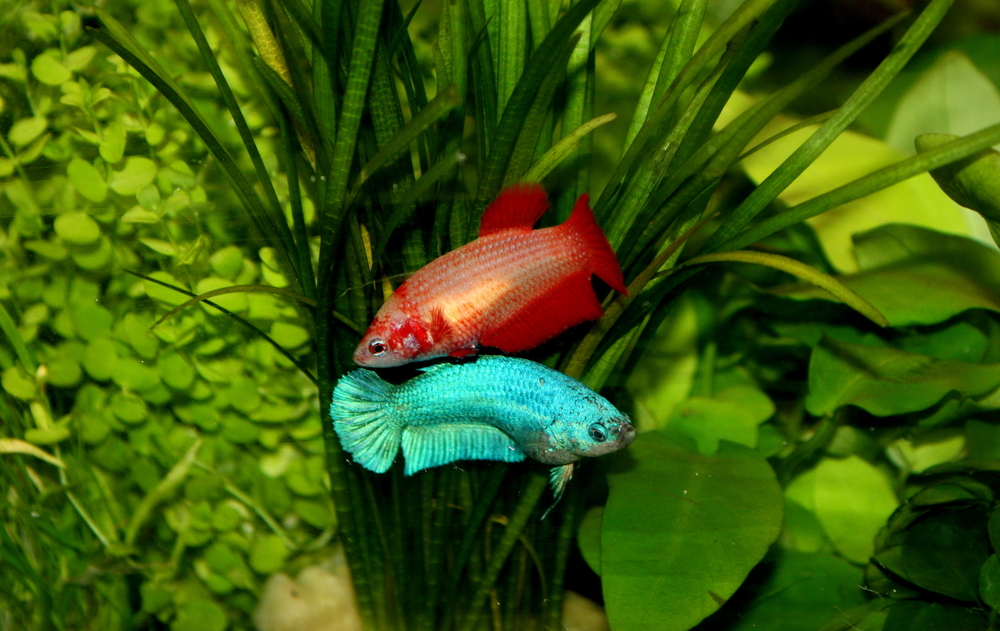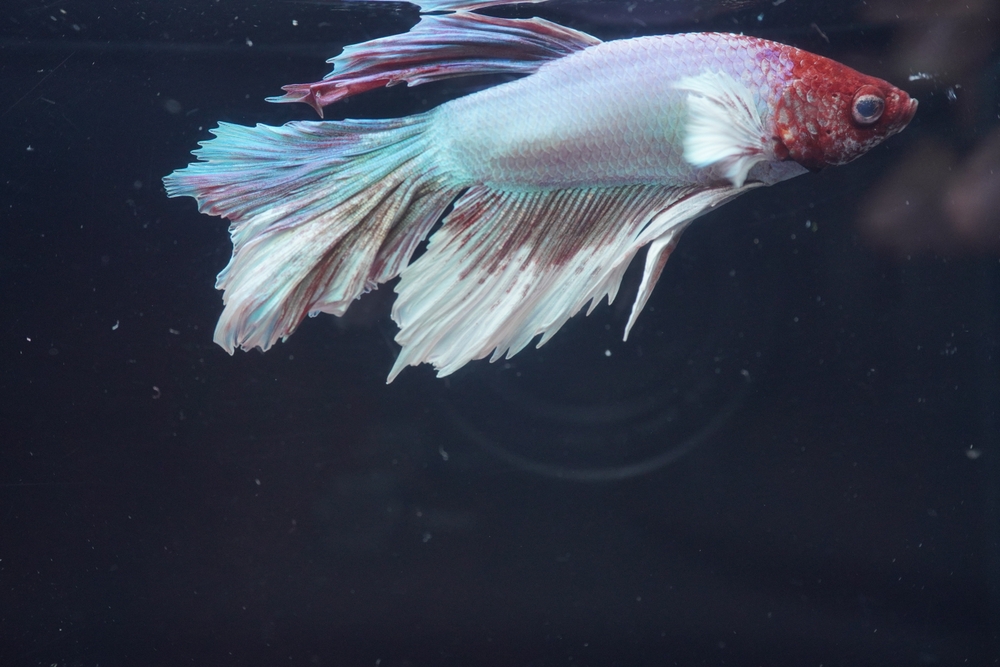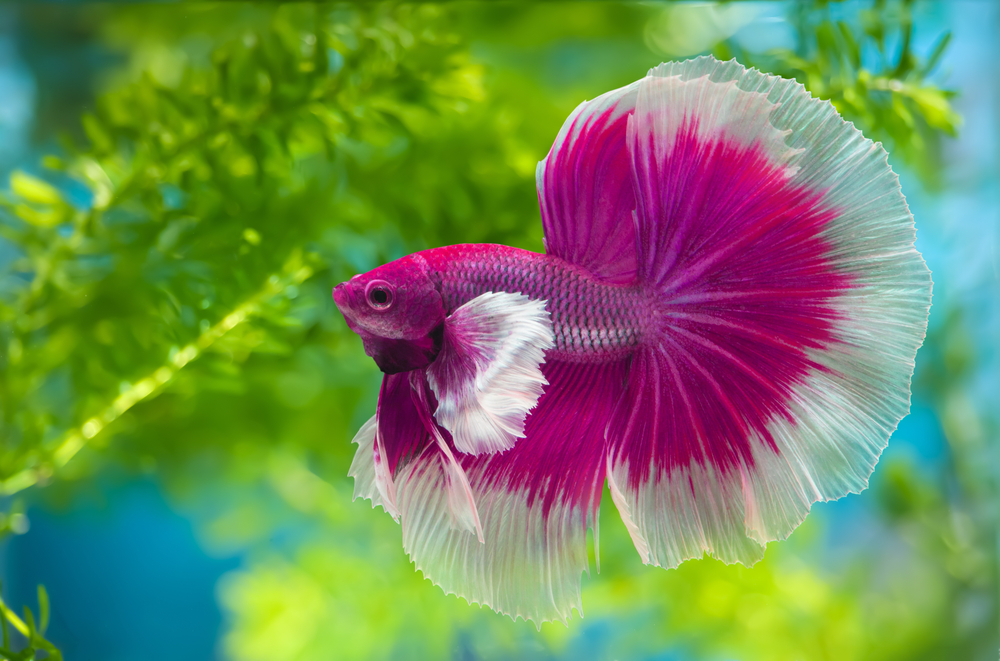The question of whether betta fish appreciate music remains a topic of curiosity among aquarists and pet enthusiasts. Like many animals, betta fish respond to their environment, which includes the perception of sounds and vibrations.
Understanding how these creatures interact with auditory stimuli can provide insights into their well-being and preferences. While human enjoyment of music is well-documented, projecting our experiences onto aquatic life requires a careful look at the science of sound transmission in water and the sensory capabilities of betta fish.
Betta fish do not experience music or sounds in the same way humans do; instead, they sense vibrations through the water. These vibrations are the result of sound waves traveling faster in a water medium compared to air.
Given that the hearing mechanism of betta fish is adept at detecting underwater vibrations, the presence and intensity of sound can indeed influence their environment and behavior.
However, it’s crucial to avoid anthropomorphizing and to consider scientific evidence when assessing the impact of music on betta fish, which can range from being seemingly indifferent to actually being stressed by strong vibrations of loud music.
Consequently, providing an optimized musical experience for betta fish involves a careful consideration of volume and frequency to ensure a stress-free habitat.
Contents
Key Takeaways on Do Betta Fish Like Music?
- Betta fish perceive sound as vibrations in water, not as audible music.
- The sensory experience of betta fish with sound can affect their behavior and environment.
- Creating a serene habitat involves considering the impact of sound and vibration.
Also don’t miss:
Understanding Betta Fish
Betta fish, often known as Siamese fighting fish, are popular freshwater fish admired for their vibrant colors and elaborate fins. This section explores their origins, characteristics, and behavior to provide betta fish owners with scientific evidence-based insights.
Betta Fish Origins
Betta fish hail from the warm, shallow waters of Southeast Asia. They are often found in rice paddies, floodplains, and canals, environments that have shaped their unique physiology and behavior.
These environments have contributed to the betta fish’s ability to breathe atmospheric air using a special organ called the labyrinth.
Betta Fish Characteristics
- Body: Streamlined and slender
- Fins: Long fins that can vary in shape and size
- Colors: Wide spectrum of colors due to selective breeding
Adaptations:
- Labyrinth organ: Allows breathing of atmospheric air
- Gills: Like other freshwater fish, bettas extract oxygen from water
Bettas exhibit a diversity of colors and fin types thanks to decades of selective breeding. They have a distinctive physical trait known as the labyrinth organ enabling them to survive in oxygen-depleted waters by breathing air from the surface.
Betta Fish Behavior
Betta fish exhibit a range of behaviors, both intriguing and complex.
- Territoriality: They are known for their aggressive behavior towards others of the same species, especially males.
- Display: Males flare their gills and spread their fins to intimidate rivals or attract mates.
- Interaction: They can interact with humans, showing recognition and anticipation of feeding.
While often perceived as aggressive, bettas can display a unique personality with varying responses to stimuli. Bettas have been reported to react to their reflections or movements outside their tank, although there’s no scientific evidence suggesting a preference for music.
The Science of Sound in Water
When exploring the aquatic soundscape, it’s crucial to understand how sound travels in a medium so different from air and how organisms adapted to this environment perceive such vibrations.
How Sound Travels Underwater
Underwater, sound propagates as a mechanical wave of pressure and vibration. It moves through water molecules by causing them to oscillate, which transfers the sound energy across distances.
Compared to air, sound waves travel faster and farther in an aquarium or any water body. This is due to water’s denser molecular structure, which enhances the transmission of sound.
Betta Fish and Sound Perception
Betta fish possess a sense of hearing akin to other fish, relying not just on their ears but also on a unique organ known as the lateral line. This system, running along the sides of their bodies, enables them to detect subtle changes in water pressure and vibrations.
Although they lack external ears, bettas can sense sounds through the bones in their head that pick up on sound wave vibrations.
Can Betta Fish Hear Music?
While betta fish do not hear music in the way humans do, they can perceive the vibrations and pressure changes it produces underwater. Any sound played outside an aquarium can be transmitted through the glass and into the water as vibration, which betta fish may sense.
However, the extent to which they can distinguish musical patterns or rhythms from ambient noise remains uncertain, and whether they have a preference for specific types of music is still a topic of curiosity among owners and researchers alike.
Betta Fish and Their Environment

Creating an ideal environment for betta fish involves meticulous aquarium setup and fostering a calming atmosphere. The goal is to mimic their natural environment as closely as possible to ensure their comfort and well-being.
Aquarium Setup
The aquarium is the cornerstone of a betta fish’s habitat. An appropriate fish tank should be spacious enough—at least 5 gallons—to allow for full fin extension and proper swimming.
A well-arranged aquarium with plants and decorations emulates the complexity of a natural environment and provides necessary hideouts. It’s crucial to include a lid as bettas are known to jump, and maintaining stable water temperatures contributes to their comfort.
Importance of a Calming Environment
A calming environment is imperative for the well-being of betta fish. Loud noises and vibrations can stress them, so it’s significant to position their aquarium away from electronics and high-traffic areas.
Incorporating live plants contributes to a serene ambiance and helps regulate the water conditions, making the habitat more comfortable. A stress-free tank promotes healthy behaviors and longevity in betta fish, paralleling their natural environment as closely as possible.
Impact of Music on Betta Fish
Betta fish, known for their vibrant coloration and elaborate fin displays, are also observed to have reactions to ambient stimuli such as music. Understanding how they respond can give insight into optimizing their environment for wellbeing.
Reactions to Different Types of Music
Studies and anecdotal evidence suggest that betta fish react to music, altering their behavior based on the type of music played around them. Fast-paced or loud music often correlates with increased activity or aggressive behavior.
In contrast, softer and slower-tempo music might have a calming effect. For instance, classical music has been associated with relaxed swimming patterns in some bettas.
Music Preferences and Behavior Changes
An individual betta fish may show preferences in their behavior when exposed to different kinds of music. Some might appear more entertained or active, possibly indicative of happiness, when specific genres are played.
However, the correlation between particular musical styles and consistent behavioral changes across all betta fish remains unclear. Careful observation of an individual betta’s reactions is essential to determine its unique preferences.
Optimizing Musical Experience for Betta Fish
In creating a beneficial environment for betta fish, understanding the nuances of acoustic exposure is essential. This includes the selection of appropriate music types and managing audible elements like volume and frequency.
Choosing the Right Music
When curating a playlist for betta fish, it’s pivotal to favor genres that induce tranquility. Soft music, especially classical music, is often recommended due to its harmonic structure and smooth tempo.
Studies and anecdotal evidence suggest that betta fish can respond favorably to melodic tunes that mimic the serene nature of their aquatic habitat.
To cater to their preferences, one might consider compositions by Bach or Debussy, which provide a soothing background for these sensitive creatures.
- Recommended Music Types:
- Classical Music
- Ambient Music
- Calm Music
Volume and Frequency Considerations
Volume levels should be kept low, as betta fish are sensitive to abrupt sounds and loud noises. A low volume ensures the music provides a calming effect without causing undue stress.
The key is to avoid startling the fish while still providing the auditory stimulus that can enrich their environment. Moreover, betta fish perceive frequencies differently than humans, so it is important to avoid high frequencies that could potentially be discomforting.
- Volume Guidelines:
- Keep the volume low to prevent stress.
- Ensure the music is audible but not intrusive.
By adhering to these tips and maintaining a consistent, soothing auditory environment, one can optimize the musical experience for betta fish, contributing to their overall well-being.
Evidence-Based Insights
When discussing whether betta fish appreciate music, one must consider both scientific research and anecdotal observations from owners. Both avenues provide varying perspectives on the impact of music on betta fish well-being and overall health.
Scientific Research
Scientifically, there is little conclusive evidence that directly correlates music with a positive effect on betta fish’s wellness. Research generally focuses on how fish perceive environmental sounds.
Betta fish perceive sound as vibrations through water, which can be amplified by aquarium glass. It’s understood that loud noises can stress aquatic animals, suggesting that if music is played, it should be kept at a low volume to avoid negative reactions.
Anecdotal Observations from Owners
Conversely, some betta fish owners have observed what they interpret as a positive effect of music on their fish. These anecdotal observations report instances of betta fish appearing more active or even ‘dancing’ when music is played.
However, without a controlled study, it’s difficult to substantiate the claim that music inherently improves the well-being or overall health of betta fish.
These accounts vary significantly, and while some owners feel music is beneficial, others notice signs of stress in their aquatic pets when exposed to music.
Creating a Stress-Free Habitat

Creating a stress-free habitat for betta fish involves carefully balancing their sound environment to reduce stress levels and promote well-being. Attention to the type and volume of ambient noise is crucial in achieving a quiet, serene setting conducive to their health.
Noise vs. Music
Noise in a betta fish habitat should be minimized as excessive sound can be stressful for them. Unlike humans, betta fish perceive vibrations and sounds differently underwater.
Research suggests that while loud music and sudden sounds can be stressful and harmful to their delicate hearing, calming music played at a low volume may have a soothing effect. It is essential to distinguish between disruptive noise and potentially soothing sounds, to maintain a quiet environment beneficial for the fish.
Structuring a Comfortable Soundscape
In structuring a comfortable soundscape, one aims to establish a sense of tranquility within the aquarium. To keep stress levels low, avoiding noisy surroundings is key. A setup might include:
- Soothing background sounds: Gentle, softer tones or white noise at low volume may be beneficial.
- Avoidance of loud music: Prevent exposure to loud, high-energy music that can cause agitation.
By prioritizing a quiet environment with attention to the quality and quantity of ambient noise, the habitat nurtures a more peaceful and stress-minimized living space for betta fish.
Frequently Asked Questions About Bettas and Music

Betta fish, with their vibrant colors and dynamic personalities, have become popular pets. Many owners ponder whether these aquatic pets can enjoy music just as humans do. Understanding how bettas perceive sound is key to answering this.
Can Betta Fish Hear Music? Bettas sense vibrations in the water, which means they can detect sound waves. However, they do not hear music in the way humans do. Instead, they feel the beat and rhythm as vibrations.
Do Bettas Love Music? The idea that bettas love music is a bit anthropomorphic. Although they may react to music, interpreting these reactions as “loving” the music is speculative. Some bettas might show signs of activity when music is played, but it is crucial to note the individuality in their responses.
- Reactions to Music:
- Positive: Mild swimming patterns, calm demeanor
- Negative: Rapid movement, signs of stress
What Kind of Music Is Best for Betta Fish? If one chooses to play music for betta fish, it should be soft and at a low volume. Loud or intense music can cause distress, so moderation is essential.
Do Bettas Respond to Specific Songs? There isn’t concrete evidence to suggest bettas respond to specific songs. Owners may experiment with different genres to see any changes in behavior but should always prioritize the wellbeing of their betta over these observations.
| Music Type | Likely Betta Reaction |
| Soft | Neutral/No visible distress |
| Loud | Possible stress/agitation signs |
In conclusion, bettas experience music as ambient vibrations, and while they may react to the sounds, owners should be cautious not to misinterpret these reactions as enjoyment similar to human responses. The safest course is to monitor one’s betta for signs of stress and adjust the environment accordingly.
Frequently Asked Questions
Exploring the auditory world of betta fish reveals how sounds and music might affect their wellbeing. This section aims to address common inquiries regarding the sonic environment of these popular aquarium inhabitants.
What sounds are calming to betta fish?
Betta fish can be more at ease with soft and soothing music, similar to what might relax a human listener. The volume and tempo are critical; loud and fast music can be distressing.
How can music influence betta fish behavior?
Music can affect betta fish in various ways; they can react to music with increased activity, aggression, or indifference. Each fish may respond uniquely depending on the type of music and its personality.
What are the signs of a betta fish enjoying or disliking sounds?
A betta fish might show enjoyment of music by swimming gracefully or appearing more active. Dislike or stress might be indicated by erratic swimming or aggressive movements.
Can communication methods such as talking help in bonding with betta fish?
Speaking to betta fish can be beneficial; they have the capability to hear voices and may become familiar with the sound of their owner’s voice, possibly aiding in their joint bonding experience.
How can environmental enrichment be provided to betta fish?
Environmental enrichment for betta fish can include a variety of auditory stimuli in moderation, such as talking, music, or even the usual household sounds, which can contribute to their sensory experiences.
What are some tips for safely introducing sounds or music to betta fish habitats?
To introduce sounds without causing harm, start with playing music at a low volume and observe the betta’s behavior. Gradually adjust sound levels, always keeping an eye on the fish’s reactions to avoid any adverse effects.

Ian Sterling, founder of Fishlab.com, began his aquarium journey over 30 years ago, driven by a deep fascination for fish and their diverse personalities. His website, Fishlab.com, is dedicated to making fishkeeping accessible and enjoyable, offering beginner-friendly guidance, expert insights, and a community for aquarists to connect and share experiences.


